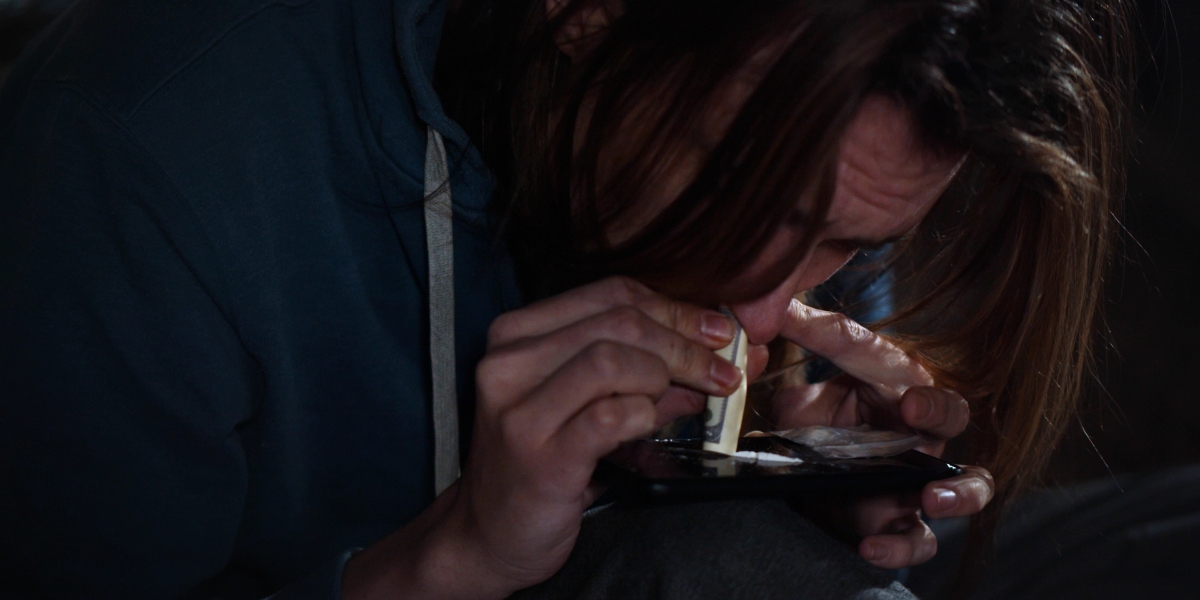Cocaine Addiction Treatment

Cocaine use disorder almost always requires professional addiction treatment to address the physical and mental health problems caused by long-term cocaine abuse. Each person seeking treatment for cocaine addiction should be evaluated for their specific needs, then informed about their treatment options and what to expect.
What Is Cocaine Use Disorder?
Cocaine use disorder, like all substance use disorders, is a chronic, relapsing illness marked by mental and physical changes, including compulsive drug use despite harmful consequences. Substance use disorders vary from mild, moderate, or severe based on meeting specific criteria used by medical professionals.
The most recent National Survey on Drug Use and Health (NSDUH) showed that 5.2 million people in the United States had tried cocaine in the past year, and approximately 1.3 million people have a cocaine use disorder.
Cocaine is highly addictive because of the chemical reactions it produces in the brain, mainly a rush of dopamine that causes intense feelings of euphoria and reward. Repeated cocaine use leads to cravings, tolerance, dependence, and withdrawal symptoms if a person suddenly stops. Many people with cocaine dependency abuse other substances alongside cocaine, which can lead to multiple substance use disorders developing. Not every person who experiments with cocaine will develop a substance use disorder; however, some people have risk factors that increase the likelihood of developing dependency and addiction.
Risk factors for developing cocaine use disorders include:
- Genetics– Some people process and physically react differently to drugs based on genetic traits.
- Family history of substance abuse– Early exposure and normalization around drug abuse increase the likelihood of drug experimentation at a young age. It also increases access to drugs that otherwise may be difficult to get.
- Early exposure– Trying drugs at a young age increases the likelihood of addiction as it affects their physical, mental, and social development.
- Method of abuse– Cocaine is highly addictive, but smoking or injecting it intensifies the effects, contributing to stronger cravings and an increased likelihood of addiction.
- Co-occurring mental illness– Self-medicating mental illness offers temporary relief and distraction from the symptoms but ultimately worsens mental health and substance use disorders. Though they are different disorders, they become intertwined and feed off each other, requiring specialized treatment.
When cocaine use disorders are left untreated, people are at higher risk of fatal outcomes, including heart attacks, aneurysms, cocaine-induced psychosis, overdose, and death.
Unfortunately, overcoming cocaine addiction is more complex than “just saying no” to drugs; people must seek treatment to help them overcome their addiction. The highest long-term recovery success rates come from rehab programs, specifically residential inpatient rehabilitation programs, that treat cocaine addiction’s impacts and contributing factors.

Cocaine Addiction Treatment
According to the National Institute on Drug Abuse (NIDA), approximately 6% of all addiction treatment admissions are for cocaine abuse. Almost 70% of those who seek treatment for cocaine use disorder also had other substance use disorders.
Whether treating one or multiple co-occurring disorders, addiction treatment programs must address addictions’ physical, mental, emotional, behavioral, and environmental aspects. Every person will have unique needs and goals and should find treatment plans that cater to those.
The overall recommendation and general outline of treatment for cocaine addiction involve detox, rehab programs, relapse prevention planning, and follow-up plans. Below are some of the treatment approaches with the highest success rates.
Medical Detox
Medical detox uses FDA-approved medications to relieve and ease withdrawal symptoms while monitoring health and vital signs. One of the biggest reasons many people continue to abuse drugs is to avoid withdrawal. Withdrawal is an unpleasant, intense experience, with sometimes life-threatening side effects, and when a person is the most at risk of relapsing.
Even after the effects wear off, cocaine stays in the body for up to 48 hours; withdrawal starts as cocaine works its way out of the system. No specific medications are approved for cocaine withdrawal and cravings, though some are currently undergoing clinical trials. However, other medicines can help address physical discomfort and overwhelming mental health issues that increase during withdrawal. Detox is the first step of cocaine addiction treatment.
Residential Treatment
Residential treatment, sometimes called inpatient rehab, has the highest success rates for treating co-occurring substance abuse and mental health disorders. These treatment programs offer stable, controlled environments removed from the outside factors that can contribute to ongoing substance abuse. Residential inpatient treatment centers provide integrated treatments in one place, surrounded by 24-hour professional support and peers that know what you are going through. Establishing independence and routines in a structured environment helps set the framework for maintaining long-term recovery.
Cognitive Behavioral Therapy (CBT)
Cognitive behavioral therapy (CBT) aims to identify thought patterns and reactions contributing to cocaine abuse and teach healthy ways to reframe those thoughts and actions. CBT focuses on avoiding triggers, overcoming cravings, and preventing relapse.
People with cocaine use disorder treated with cognitive behavioral therapies showed continued improvements and adherence to recovery plans during follow-up studies. Many who find cognitive behavioral therapy helpful continue to utilize it as part of their long-term recovery plans.
Support Groups
Support groups during and after treatment are essential to developing a support network and sense of community. Most support groups follow a 12-step model of recovery.
Regularly attending support groups helps prevent relapse while allowing people to discuss their struggles and recovery without shame or stigma. Cocaine Anonymous (CA) caters specifically to people with cocaine use disorder and has free, easily-accessible meetings throughout the United States.

Withdrawal Symptoms
Cocaine withdrawal symptoms are physically and mentally intense but rarely life-threatening. However, they can be severe and overwhelming and include urges to return to using drugs or to self-harm because of psychological anguish. The length and severity of cocaine withdrawal will vary for each person.
Common cocaine withdrawal symptoms include:
- Intense drug cravings
- Mood swings
- Agitation
- Depression
- Difficulty focusing
- Anxiety
- Appetite changes
- Changes in heart rate and blood pressure
- Sudden body temperature changes
- Sweating
- Chills
- Abdominal cramping
- Fatigue
- Headache
- Muscle soreness
- Body aches and pain
- Suicidal thoughts
When a person is going through withdrawal from cocaine and other substances, withdrawal can become complicated and have unexpected side effects. Many long-term cocaine abusers are malnourished and underweight and require nutritional attention and support during withdrawal.
Supervised medical detox is the best way to ensure a safe withdrawal experience, making withdrawal’s physical and psychological aspects more comfortable and aiding the transition into follow-up treatment.
Treatment for Cocaine Addiction in Northridge, California
Seeking treatment for cocaine addiction is one of the best decisions a person suffering from addiction can make. Once you make that choice for yourself, Northridge Addiction Treatment Center can help you take the necessary steps to live free from substance abuse, supporting each stage of your recovery.
NATC’s residential treatment facility gives you a calm, private place to begin your recovery, away from daily life’s outside triggers and temptations. We offer onsite medical detox surrounded by our compassionate and experienced medical professionals to keep you safe in a nurturing setting.
At NATC, we create custom, personalized treatment plans for every resident to address unique needs and healthy ways to cope without drugs or alcohol. Our caring treatment specialists are eager to get you the help you need. Reach out today.
Find Meaningful Recovery
Our caring and compassionate specialists are eager to help you comfortably navigate this journey to recovery. Our individualized treatment plan, programs, and therapies may be a perfect match for you or your loved one. Let us assist you in living the happy life you deserve. It starts with a phone call.




